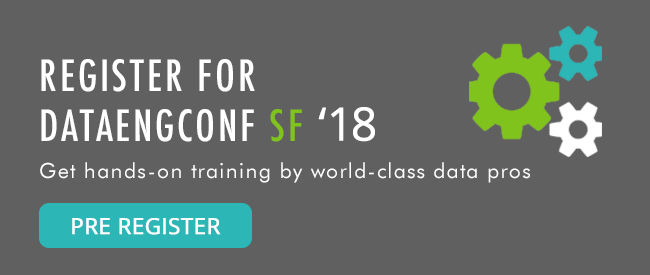Data Council Blog
The Future of Distributed Databases is Relational
What if developers could ditch their No-SQL solutions and still get scalability from a more traditional relational datastore?
I've been noticing an interesting pattern recently where developers seem to be rejecting some of the newer, more en vogue data stores with limited functionality and use-cases (while promising easier scale) and returning to the comfortable tried-and-true paradigm of relational databases. It seems that we've hit a watershed point where developers finally believe they don't necessarily need to make a trade-off between database features on one hand and easy scalability on the other.
One such company enabling this return to the golden era of of RDBMS is Citus Data. Citus is blazing a trail in 'cloud-proofing' the gold standard of relational databases, PostgreSQL, through extensions that allow their customers to achieve much easier horizontal scalability than ever before.
We're excited to have Citus' co-founder and VP Engineering, Sumedh Pathak, on the agenda for DataEngConf SF 18, and I was able to have a chat with Sumedh about what to expect from his talk.
Meet Sumedh Pathak of Citus Data
Sumedh is a co-founder of Citus Data and the VP of Engineering. Before Citus, he worked as a software engineer at Amazon on the shopping cart app. He also worked on distributed data stores like DynamoDB, and relational data stores such as Oracle. Sumedh has an M.S. in Computer Science from Stanford and a B.S. from University of Minnesota. In his free time, he keeps it simple: "you’ll find me with my family and throwing the tennis ball for our dog."
In his talk, "Scaling a Relational Database for the Cloud-Age," Sumedh will discuss ways that developers can re-think their use of Postgres in the cloud.
I asked Sumedh what surprised him most about his work at Citus and he told me that Postgres was extremely capable at handling very large workloads, plus once they got under the covers they discovered that making extensions to it via its APIs was surprisingly effective.
During his talk, Sumedh will give an overview of how to think about scaling relational databases. He'll then give three broad topics to consider, (scaling relations, scaling SQL and scaling transactions), and will then go into depth in each area.
In scaling SQL for example, he'll talk about relational algebra operators and using mathematical properties to optimize queries. I found his explanations very interesting - it almost felt like I was going back to school and re-learning theory from my database and math classes!
Want to hear more talks like this? Join us at DataEngConf SF '18 and be part of the biggest technical conference around data science and engineering.
Subscribe to Email Updates
Receive relevant content, news and event updates from our community directly into your inbox. Enter your email (we promise no spam!) and tell us below which region(s) you are interested in:
Fresh Posts
Categories
- Analytics (15)
- Apache Arrow (3)
- Artificial Intelligence (7)
- Audio Research (1)
- big data (7)
- BigQuery (2)
- Careers (2)
- Data Discovery (2)
- data engineer salary (1)
- Data Engineering (46)
- Data Infrastructure (2)
- Data Lakes (1)
- Data Pipelines (6)
- Data Science (33)
- Data Strategy (14)
- Data Visualization (6)
- Data Warehouse (10)
- Data Warehousing (2)
- Databases (4)
- datacoral (1)
- disaster management (1)
- Event Updates (12)
- functional programming (1)
- Learning (1)
- Machine Learning (18)
- memsql (1)
- nosql (1)
- Open Source (21)
- ops (1)
- postgresql (1)
- Redshift (1)
- sharding (1)
- Snowflake (1)
- Speaker Spotlight (5)
- SQL (2)
- Startups (12)



